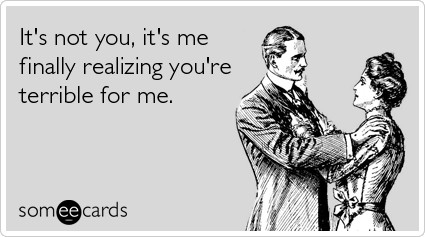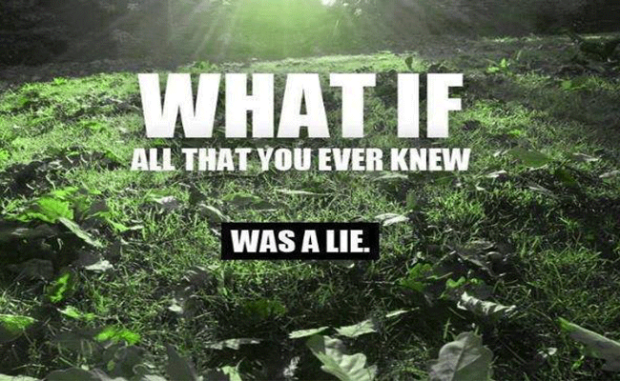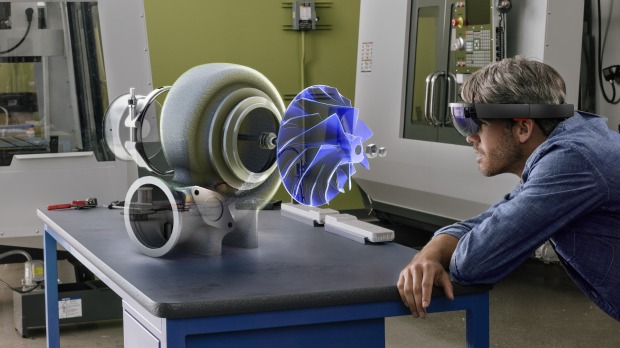Everyone likes to get something for free right? But if you think about it nothing in this world is truly free. If you follow it back far enough, somewhere along the line, one way or another, someone or something is having to pay, keep in mind that I’m not just talking about with money here. Whether you’re downloading an MP3 you were supposed to pay for or simply taking a shit, someone has to pay. I’ll leave you to ponder that last one while I get back on topic, so let’s take a look at Copyright.
The Good and Bad of Copyright
Fuzzy Stuff
From my point of view, Copyright is both good and bad, the law itself and, more importantly, the idea behind it, is good. At its most basic level, Copyright is there to prevent someone from taking your creations and claiming them as their own. Copyright is an easy way of claiming ownership over something that also ensures your recognition for it, but, in a way, this is where the line between good and bad begin to blur.
Copyright is also designed to prevent the copying and distribution of your creations without given consent and, the clincher, payment. The payment part is where things often get out of hand, particularly when it comes to infringement. Although it does happen, this is not something that is commonly heard of within New Zealand but, regardless of what country you live in, being charged with infringement is a potentially life-ruining experience.
The reason this can be life ruining is that whoever is charging you with the infringement can usually claim copious amounts in compensation and damages, so much so, you could find yourself in debt for the rest of your life and could even pass the remainder of that debt onto your children after you pass. In a lot of cases, they can make a claim for far more than the original creation was even worth and, to make it worse, they can do this regardless of whether your infringement was intentional or just a genuine mistake.
All of this, regardless of your intent, is based on their claim that you have used their “original” content without permission, but in this day and age how can you really define original? Finding something that’s truly original is extremely rare, some would even say it’s impossible, because the inspiration and ideas behind everything being created; Art, Photography, Music, Movies, Games, Technology, the list goes on, have almost undoubtedly sprung from something that came before it. This is an issue that can cause confusion about how we define Fair Dealing and who should hold the Copyright in the first place.
Digging Deeper
Although the above summarizes, in my opinion, some of the good and bad aspects of Copyright, from my perspective there is still one major problem with the Copyright Law, or should I say, Laws.
By far the largest issue I see with Copyright is that it really hasn’t ‘caught up’ to the digital age yet, we now live in a world where the amount of Copyrighted/Pay For material available to copy or download for free is not only immense but it’s so damn easy to access, and even though the entire world is now interconnected, there is no singular Copyright Law that has been internationally decided upon. There are basic guidelines but every country still has their own independent laws which can cause issues with inter-country sharing.
Governments have proposed multiple bills designed to strengthen the enforcement of Copyright Laws in attempts to “adapt” the old laws to the digital age, using direct approaches with things like SOPA or PIPA and even much broader approaches with the likes of ACTA or the TPPA. But is creating new laws to strengthen the old ones even necessary? Take the case of Megaupload as an example, they didn’t need any of these new laws to take that down, did they?
At least they’re trying to do something but overall, to me, they’re half-assed solutions mainly designed to give large corporations more rights. There’s so much opposition to these laws because they don’t seem at all designed with the general public in mind. The design of SOPA and PIPA threatened to transform the internet from a plethora of knowledge and open sharing into a dangerous place where sharing could see you or the web host seriously penalised and the TPPA has potential to be much, much worse than that.
Why do people breach Copyright?
In reality, before we really start looking for solutions we need to figure out just why people breach Copyright in the first place.
I did what now?
With the digital world being such a vast repository of material that is constantly being shared, re-shared, re-engineered and then re-shared again, it’s my personal belief that the number one reason people breach Copyright in this day and age is quite simple, they actually just have no idea they’re even doing it. Most people don’t realise that they actually need permission from the original artist before they can publish something and that simply stating “No Copyright Intended” is not enough.
What Value?
The second most common reason, in my opinion, is that people just don’t see the value in things anymore and they simply can’t justify the cost. Why pay $3.00 for an MP3 when you can just as easily get it in the same or better quality, for free? Why pay $18.00 to go to the movies when you can get that movie for free and watch it in the comfort of your own home without the annoying people surrounding you?
Another example is Photoshop, this is one of the most pirated pieces of software in history, once again this is a “why pay” question, even though it’s a piece of software that people should be able to put value on quite easily, they still ask the question: why pay $1500 for Photoshop to use it maybe once a month when you can just get it for free?
Whether it’s Music, Movies, Software or Games, people do this without thinking about the consequences for the people that produced them, they just think “I’m only one person” or “they get paid enough already” and don’t realize just how many other people are thinking this way and what the real impact of this is on the creators.
How would I fix this?
My approach would be two pronged and directed at alleviating the two issues above, firstly by giving everyone greater access for lower prices and secondly have all countries collaborate to create a new, globally agreed upon, Copyright Law that is also designed to allow more leniency towards using material for the purposes of non-profit creativity.
Lower Prices
This part of my solution is something we have already started to see with many companies beginning to introduce limited time, or subscription, licencing. I mentioned above about Photoshop being one of the most pirated pieces of software ever made, I believe this was mainly because of its price, now however, you can gain unlimited private use of the latest version of Photoshop, Photoshop CC, for a mere NZ$11.08 (13th April 2016) per month. By Adobe doing this, all of a sudden, their “overpriced” software is completely affordable to the average user, I mean really, how many full-time workers in the “developed” world can’t afford NZ$2.77 a week? Microsoft’s Office 365 is another example of this type of licencing being used for software.
When it comes to videography (TV Series, Movies, Documentaries, etc.) there are a number of companies working towards this goal but, at the moment, the major player is Netflix. At only NZ$12.99 per month for “all you can eat” streaming, it’s extremely affordable and it’s easy to see why many people are ditching SKY in favour of Netflix because, for the most part, it gives them more convenient access to all the content they really want.
This approach is not limited to Video either, Spotify is an example of another great step forward for the Music Industry and this can even be used for free, if you don’t mind the ads and limitations, otherwise, once again it’s only $12.99 per month for their premium “all you can eat” streaming and, in many cases, the premium service is included as part of your mobile plan. I personally know multiple people who have basically replaced the stock music app on their phones with Spotify.
The greatest limitation with Netflix and Spotify at this point in time is that, mainly due to conflicts with Copyright and licensing, not everything is available everywhere, this is where the second part of my solution, a globalised Copyright Law, would come in.
Globalised Copyright Law
This is probably way too much to ask of the world, I mean seriously, just getting all of us to agree on not killing or bombing each other still seems like a massive pipe dream, so when it comes to thinking about getting all of us to agree on a single law that we would all abide by, well, for the sake of this blog, let’s just hypothesize.
When you compare the content available on Netflix between countries such as America and New Zealand, you will find that, in comparison, America have much greater access to content. This is mostly due to varying license agreements related to different Copyright Laws between these countries, it’s possible to use VPN and DNS “hacks” to gain access to another countries service but by doing this you’re actually breaching Copyright, even though you’re paying and that money is still going to the rightful license holders, crazy right? Unifying the Copyright Laws could grant all countries access to the exact same content without the licensing complications.
Simply unifying the laws wouldn’t be enough though, not for the ever-expanding use of the internet. Think about the number of people who remix videos and songs for nothing more than their own entertainment or even just practice, many of these people only share these works to receive feedback on how they can improve, if the use is not for profit then I don’t feel this should be classed as infringement, especially when the remix quite often draws more interest to the original artist.
This is where I think something similar to the Creative Commons attribution-noncommercial license should be mandatory for anything being shared on the internet (let’s face it, what isn’t these days?) and instead of licensing being hidden in the fine print, it should be displayed clearly. Doing this would make it simple for people to identify if the creator is happy to have their work modified and re-shared freely or not.
This solution, however, would only work to reduce the amount of piracy and unintentional infringements because, I believe, no matter what laws are introduced or how affordable you make something, there is always going to be someone who cannot justify the cost and, therefore, piracy will probably always exist in some form. Another point to note is that, as I said above, for this solution to even stand a chance, the whole world would have to be able to agree not to kill or bomb each other first.










